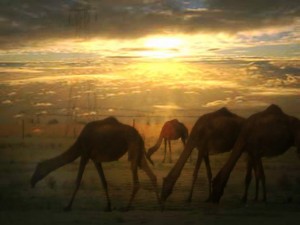
I think we want to know about our mothers, so we can know and understand ourselves better.
The problem is that everyone has secrets, even we, daughters, hold them.
Often what we ask and desire of our mothers we can and are least prepared to give our own daughters.
How hypocritical.
Is this because we are difficult persons?
I doubt it.
We, like all other humans, are afraid.
But what is so frightening about sharing (age appropriately) intimate knowledge of our personalities with out daughters?
I do not believe we fear what our daughters will do with the information.
They would feel too honored to be welcomed into the holy sanctum of who mom truly is, to use that knowledge against us.
They would and in fact do when we invite them in, guard this information with their life.
Teenagers, particularly adolescent girls, know a secret and value the importance of keeping confidence, often better than we, their mothers do.
So what is it that frightens us so.
Exposure, for one.
But what to?
Or rather subjection into what experience are we avoiding when we withhold information, or remain silent about those emotions and experiences with which we can identify with our daughters at a similar age?
I would never advocate telling a ten-year-old daughter about the time you, her mother, were caught in a situation where a college boy friend was being unfaithful and you caught him having sexual relations with another girl.
But what about the times you felt like an outcast in fifth grade, same as your eleven-year-old sixth grader is undergoing right now?
It would really help for her to know that neither is she alone in her plight–other girls her age are experiencing the same, which does not make it right or more tolerable. But that you know this because you, her mother was also mistreated by snooty and not nice girls when you were in grade school.
You know the things you know about life and how difficult and painful life is because you too have felt sorrow, betrayal by a BFF, the boy you thought was the love of your life, never thought your mother could understand–she appeared so together and unconcerned.
But you, her mother, who was once a pimply-faced girl who wore glasses, and braces on your teeth, were also a daughter, a girl who felt lost without a map.
You brush your daughter’s forehead, lift her hand and in sharing this guarded information, revisit the terrain of childhood, but from a different vantage point.
One of knowing it does not last forever.
And in this knowledge you become an experience, one that your daughter and neither you will forget.
